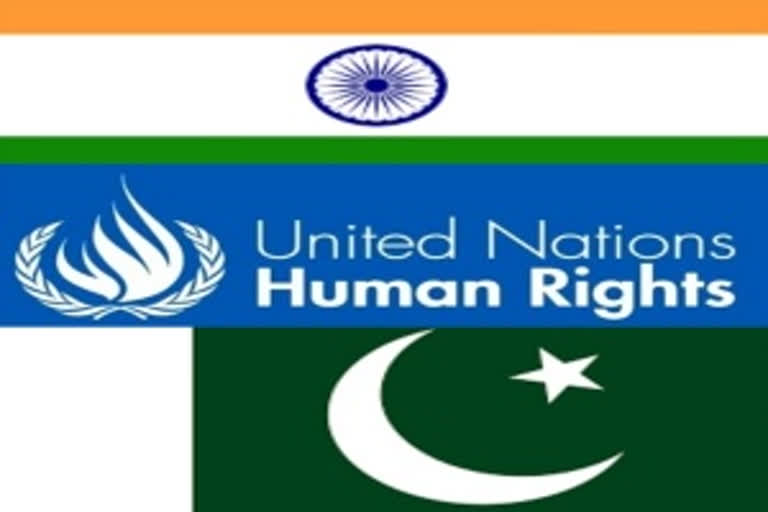New Delhi: India on Wednesday exercised its Right of Reply in response to the statement by a representative of Pakistan during the High-Level Segment of the 46th session of the Human Rights Council (HRC).
India's Right of Reply was delivered by the second secretary, Permanent Mission of India to UN, Seema Pujani at the 46th session of HRC.
She said, "We are not surprised that Pakistan’s representative has chosen to misuse this august forum yet again. Pakistan’s continued misuse of various platforms to engage in baseless and malicious propaganda against India is not new."
"We reiterate that the entire Union Territories of Jammu and Kashmir and Ladakh are an integral and inalienable part of India. The steps taken by the Government to ensure good governance and development in these Union Territories are our internal matters", she reiterated.
This comes after Pakistani Human Rights Minister Shireen Marzari raked up Pakistan's criticism of the human rights situation in Kashmir at the Human Rights Council on Tuesday.
To this, India in a strongly worded statement said, "As a country with one of the world’s worst human rights records, Pakistan would do well to put its own house in order, before venturing to point a finger at India".
Pujani underlined that the violence, institutionalized discrimination and persecution faced by Pakistan’s minorities, including Christians, Sikhs and Hindus, has continued unabated.
Also Read:Pakistan remains safe harbour of terrorists: India at UNHRC
"There have been frequent attacks on the places of worship of minority communities, a grave violation of their right to freedom of religion and belief", the young diplomat added," she said.
The condition of women belonging to minority communities, notably Hindus, Sikhs and Christians, remains deplorable.
An estimated 1,000 women from minority communities are subjected to abduction followed by forced conversion and forced marriage in Pakistan every year, according to a recent report published by the Human Rights Commission of Pakistan.
"Most of these women fall in the age bracket of 16-25 years. The fact that young women, and not men or older women, are the main victims of forced conversions is a telling fact about Pakistani society", she pointed out.
Shias, Hazaras and Ahmadiya communities have continued to face persecution, state-condoned violence and discrimination.
Adding that it’s well known that Pakistan has been crushing dissent and engaging in political repression in Balochistan, and other regions, for decades, Pujani said, "Enforced disappearances, arbitrary detentions and torture have been used as tools of coercion. Several Baloch human rights defenders have even met tragic death under mysterious circumstances, while in exile. Pashtuns and Sindhis have continued to struggle against systemic oppression and discrimination".
Referring fo the instances of repression of journalists and civil society activists are rife, Gulalai Ismail, a Pakistani human rights defender who campaigned against violence against women and enforced disappearances was charged with sedition, terrorism and defamation in May 2020, Pujani said, "In August 2020, Ms Ismail sought refuge in the USA. As retribution, the Pakistani authorities have now arrested her father, Muhammad Ismail, on ‘terror’ charges."
